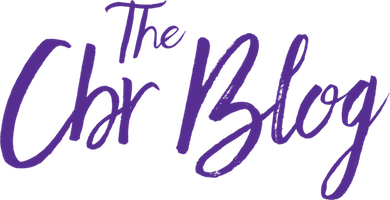A hematopoietic stem cell transplantation (HSCT) is a treatment that was developed to treat hematological malignancies and diseases many decades ago. In the procedure, the patient’s abnormal or diseased blood and immune system are destroyed by the use of chemotherapy and/or radiation, which is then reconstituted using hematopoietic stem cells. Depending on the patient’s condition, the stem cells may be from a healthy donor (an allogeneic transplant) or from the patient themselves (an autologous transplant). Over the last 20 years, researchers have been evaluating the use of HSCT in patients with multiple sclerosis (MS). This article reviews much of this research and argues that there is a compelling case to use autologous HSCT (AHSCT) in patients with highly active MS and to complete large clinical trials to test this therapy again standard drugs.
A recent review article published in Nature Reviews, Neurology details the use of AHSCT for patients with MS. The authors are clinicians and researchers from the Division of Brain Sciences Imperial College in London, the Neuroimmunology and Multiple Sclerosis Research Neurology Clinic at the University Hospital in Zurich, Switzerland, the Department of Neuroscience Rehabilitation, Ophthalmology, Genetics, Maternal and Child Health at The University of Genova, Italy and the Cell Therapy and Transfusion Medicine Unit at Careggi University Hospital in Firenze, Italy.1 Because MS is an autoimmune disease (versus a malignancy), autologous stem cells would be a preferred choice as opposed to an allogeneic source of stem cells that would carry the risk of graft-versus-host disease. This treatment would be as a traditional transplant with immune ablation via chemotherapy and then a stem cell transplant would follow to regenerate the immune system. The clinical trials reviewed by the research group primarily utilized stem cells from the patient’s peripheral blood, but there may be the potential for using autologous cord blood in the future.
What is multiple sclerosis?
Multiple sclerosis is a neurological disease that causes many different symptoms, including vision loss, pain, numbness, tingling, dizziness, fatigue, muscle paralysis, spasms, tremors, excessive urination, bowel problems, sexual dysfunction, slurred speech, difficulty concentrating, emotional changes, impaired coordination and more. In MS, damage to the protective myelin coating around the nerve fibers in the central nervous system (which includes the brain, optic nerves and spinal cord) and to the nerve fibers themselves interferes with the transmission of nerve signals between the brain, spinal cord and the rest of the body.2 These disrupted nerve signals cause the symptoms of MS and over time can damage the actual nerves and nerve cells.
Symptoms and progression of the disease varies for each individual depending on where and when the damage has occurred. The diagnosis requires evidence of damage in at least two different areas in the central nervous system that occurred at different times and is most frequently diagnosed in young adults. Areas of damage and inflammation are known as “lesions” and areas of thick scar tissue known as “plaques” may eventually form along the areas of permanently damaged myelin. Multiple refers to “many” and sclerosis refers to “scars.” There are approximately 2.5 million people diagnosed with MS worldwide.3
How is MS commonly treated now?
There is no cure for MS. Treatment depends on symptoms but generally focuses on speeding up recovery from attacks, slowing the progression of the disease, and managing ongoing symptoms. The current approved therapies for MS include chemotherapy, anti-inflammatory and immunosuppressive drugs given orally, intravenously, or self-injections, steroids, muscle relaxants, anti-depressants, bladder and bowel control medications, sexual dysfunction and fatigue medications, physical therapy, acupuncture, and more.
What does this AHSCT research mean for MS in the future?
The authors review that studies have shown complete suppression of MS disease activity for 4-5 years in 70-80% of patients with relapsing-remitting MS who have undergone AHSCT; neurological improvements have also been demonstrated.1
According to the article,1 further studies of AHSCT strengthened the evidence that the therapy is most successful if performed in the earlier inflammatory stages of MS when profound effects are seen on MRI measures and relapse activity; one of the cited studies in 2016 found that out of the 24 patients enrolled, no clinical relapses occurred in 23 surviving patients during up to 13 years of follow-up.
To minimize risk and maximize long-term results the article identifies the perfect candidate for this procedure by a number of criteria including having relapsing-remitting MS (RRMS), being under the age of 45, no longer than 10 years with the disease, recent clinical inflammatory activity, and many more specifications (meaning it is not for everyone who suffers from MS). This is a unique approach to treating MS as it resets the immune system and it is possible that stem cells from cord blood may be used in the future. More funding for clinical trials is needed to rigorously test the efficacy and safety of this approach as compared to current standard treatments.
Disclaimer: This information is for educational purposes only. Please consult your child’s healthcare provider directly for medical advice, diagnoses, and treatments. If you have specific questions or concerns about the health or development of your child, consult your child’s physician.
Sources:
- Autologous haematopoietic stem cell transplantation for treatment of multiple sclerosis by Paolo A. Muraro, Roland Martin, Giovanni Luigi Mancardi, Richard Nicholas, Maria Pia Sormani, and Riccardo Saccardi published in Nature Reviews, Neurology at www.nature.com.
- www.nationalmssociety.org
- www.mymsaa.org



Hi, can I have a name and phone number to call and talk to someone about accessing my daughter’s stem cells for therapeutic purposes?
Thank you so much!
Hi Amy,
Thank you for reaching out. You can call us at 888.240.1996 and ask to speak with a Genetic Counselor and they should be able to assist you.
Good morning. I have RRMS…and several other auto immune disorders. Diabetes since 1984, RA since 2012, MS since 2015 and fibromyalgia since 2017. I have my son’s cord blood saved since 1999. It would be awesome if some of his cells could help me. Thank you for your research.!
Hi Elizabeth,
We’re glad you have your son’s cord blood stored and hope we can help. Please call us at 888.240.1996 and ask to speak with a Genetic Counselor for more information.
My son have autism simptoms is there any solution from card blood registry we stored his cord blood in three years back and he is turning 3 in 3 months
Please let us know
Hi Suresh,
CBR and Sutter Neuroscience Institute in Sacramento, California have the first FDA-regulated clinical trial underway to assess the use of a child’s own cord blood stem cells to treat select patients with autism. Please call us at 888.240.1996 to speak with one of our Genetic Counselors for more information on this trial and future participation.
Hello,
Our daughter was hit with what is believed to be enterovirus D68 in 2014. This was a virus that attacked her spinal cord and she went from walking one night to being paralyzed the next morning. She has regained a great deal of function but she is unable to walk as she once could ( currently walks with assistance of a walker and braces on both legs). This happened when she was four and she is now 7 years old. Her stem cells and tissue were saved at birth and am interested if there has been a use for stem cells for a condition that they now cal transverse myelitis or polio like syndrome. This appears to be a condition that can be repaired with stem cells.
Hi Jorge,
Thank you for reaching out and sharing your daughter’s story. She sounds like an inspiration. While CBR does not currently have a clinical trial for this indication, there are many clinical trials underway in the U.S. and one of our Genetic Counselors would be a great resource for you to potentially connect with one. Please call us at 888.240.1996.